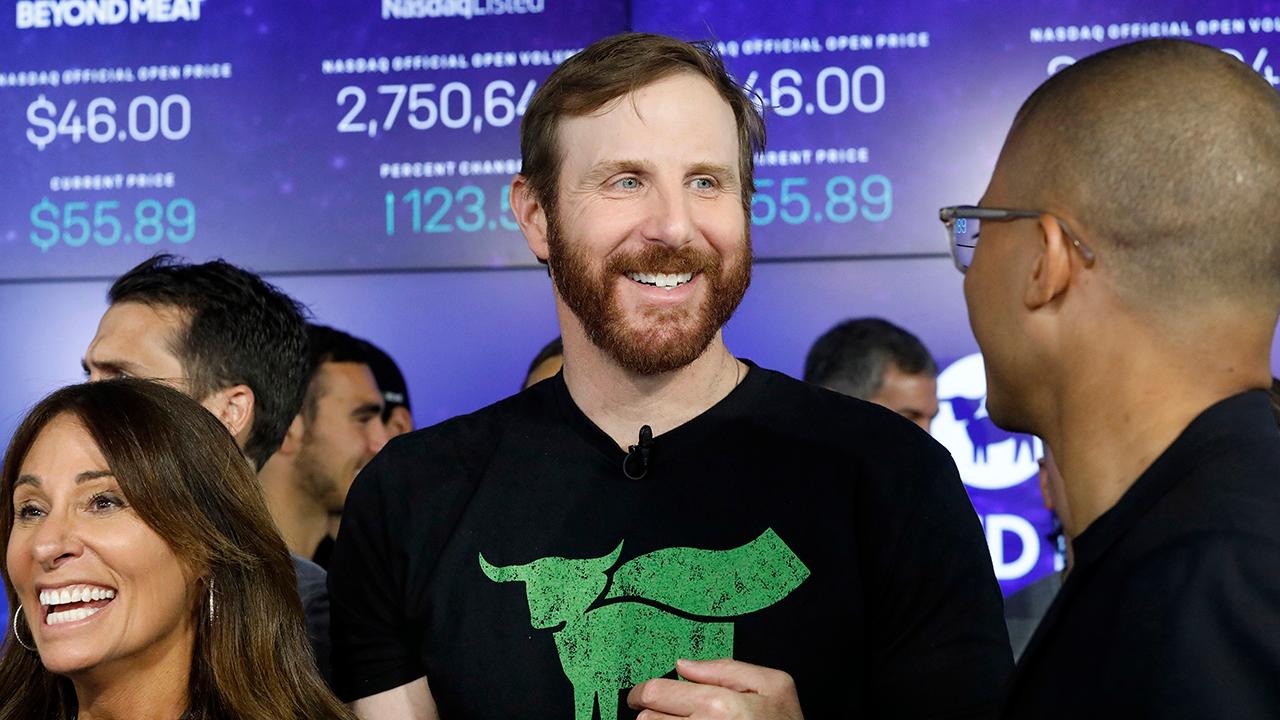Beyond Meat shares pop as another restaurant chain jumps on plant-based meat bandwagon
Beyond Meat's shares on Wednesday extended the rally that began after the company's successful debut on Nasdaq nearly a week ago as another fast-food chain jumps on the plant-based meat bandwagon.
On Wednesday, restaurant chain Tim Hortons, which is part of Restaurant Brands International Inc., said it is testing new breakfast items using the meat alternative. It added that it plans to roll out the products to all of its Canada-based restaurants by the end of the summer.
The products will feature Beyond Meat's new plant-based sausages, including a vegan sandwich.
The announcement comes as Restaurants Brands Inc. revealed plans to grow to 40,000 restaurants globally over the next eight to 10 years, making it one of the largest restaurant companies in the world.
RBI, which owns big brands such as Burger King, Tim Hortons and Popeyes, revealed its massive growth plans at its first investor day in New York City on Tuesday, saying it is "well-positioned" to take advantage of the expected growth in the global burger, coffee and chicken markets, which are expected to climb 5 to 6 percent annually.
| Ticker | Security | Last | Change | Change % |
|---|---|---|---|---|
| QSR | RESTAURANT BRANDS INTERNATIONAL INC. | 70.90 | +0.56 | +0.80% |
The RBI development follows Burger King's move with another meat alternative, Impossible Foods. Last month, the fast-food chain announced it plans to roll out the "Impossible Burger" nationwide by the end of the year.
And, according to analysts, the planted-based meat movement isn't going away anytime soon.
In fact, a new research note from Bernstein predicts the alternative meat category is headed down a similar path to plant-based beverages like almond milk, potentially growing to a $40.5 billion market by 2030.
CLICK HERE TO GET THE FOX BUSINESS APP
"If the alternative meat category develops along a similar path to plant-based beverages (from 5% - 15% of the market around a decade after the almond milk innovation turbocharged the category), then the total addressable market could be ~$40.5 billion in the U.S. within a decade," Alexia Howard wrote in a note to investors.




















